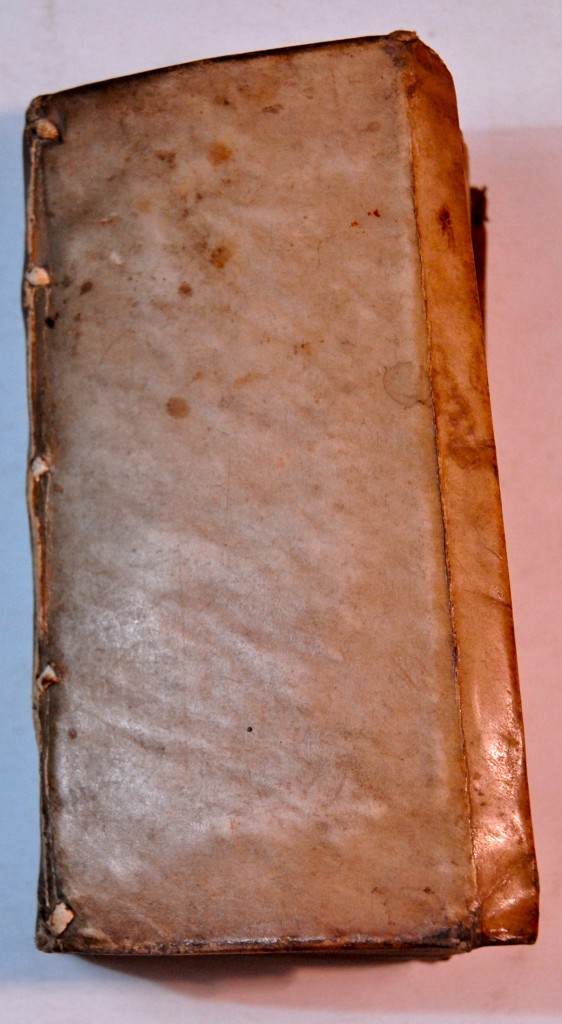COMICORUM GRAECORUM
Sententiae, id est gnomai
Geneva, Henri Estienne, 1569£1,450.00
16mo., pp [xxxii] 633 [i.e. 635], [v] last blank. Italic, Greek, and Roman letter. Woodcut headpieces, with Shirburn Castle North Library label, armorial bookplate of the Earl of Macclesfield on fly. Late mediaeval rubricated vellum ms. stubbs at end. Slight water stain to lower outer corner of final ll., fly loose. A very good copy in contemp. English vellum, yapp fore edges. Edges speckled red.
This little book, ‘pusillus liber’ as Estienne terms it in his dedication, contrasting it with his great folio of the epic poets printed in 1566, is nonetheless important in content. It contains sententiae (gnomai in Greek), culled from plays written by Menander et al., promoters of the New Comedy that came into fashion in the third century B.C. In the sixteenth century, such sententiae were collected and cultivated as suitable for quotations in speech and writing, and little collections such as this were very convenient for busy men of affairs; indeed blank pages were left so that further sententiae could be added by the reader, a point made at the end of the section on the playwright Philemon (pp. 316-417). The work consists of chapters, each devoted to a different New Comedy playwright (Alexis, Apollodorus, Diphilus i.a.), with by far the longest given to Menander, probably because more of his work survived – albeit in fragments – than any of the others’. A short biographical introduction by Gregorio Giraldi precedes a list of sententiae taken from each author, the original Greek followed by a Latin translation and explanation. An alphabetical list of subjects – e.g. friendship and drunkenness – are followed by suitable sententiae (for laughter: ‘malum grave est ridere non in tempore’), mostly taken from Menander. Henri Estienne’s own notes on the interpretation of the sententiae follow, with examples from Latin comic playwrights, such as Plautus, author of the Asinaria, some of whom are only known in this fragmentary form. Those from Publius Syrius are again organised by subject.
Greek New Comedy largely differed from the Old Comedy of e.g. Aristophanes by its focus on middle-class Athenian life and the comedy of social errors. The plays are populated by a stock cast of foolish young men, wily slaves, kind-hearted prostitutes, and put-upon fathers. The Roman playwrights Plautus and Terence were responsible for translating the Greek works into Latin. Most of the surviving fragments of New Comedy have come down to us through collections of sententiae such as this; happily some larger fragments have recently been discovered on papyri.
In stock






